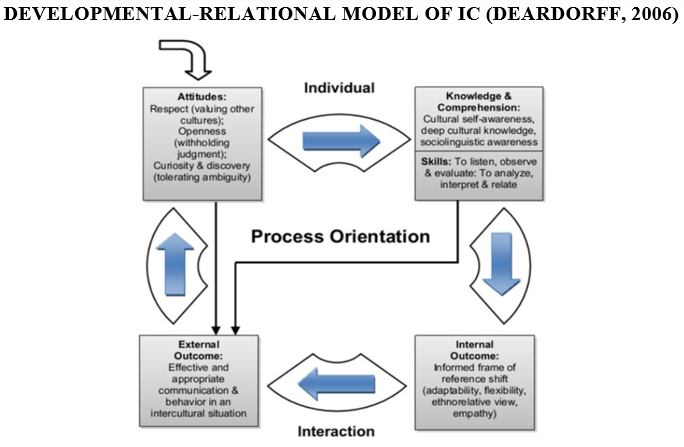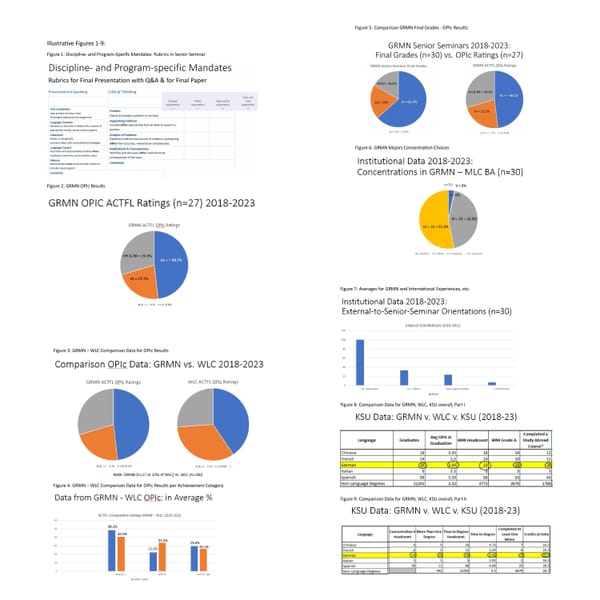Understanding Intercultural Competence (IC)

The research on intercultural competence (IC) has evolved since the 1950s, generating various models and definitions. A definition prevalent in the US views IC as cognitive, affective, and behavioral skills supporting effective and appropriate interactions in diverse cultural contexts. The (free and downloadable) AACU VALUE rubric for Intercultural Knowledge and Competence aligns with these principles, emphasizing requisite knowledge, skills, and attitudes, particularly in communication.
Duke University's scholar-educator Darla Deardorff developed a research-based IC model that prioritizes attitude in developing intercultural competence and expands previous definitions by including interaction dynamics and recognizing the iterative nature of progressive IC development. The model underscores the internal outcome of a "frame of reference shift" and the external outcome of effective interactions, essential in, for example, teamwork. This developmental-relational model of IC conceptualizes IC development as a lifelong process.





